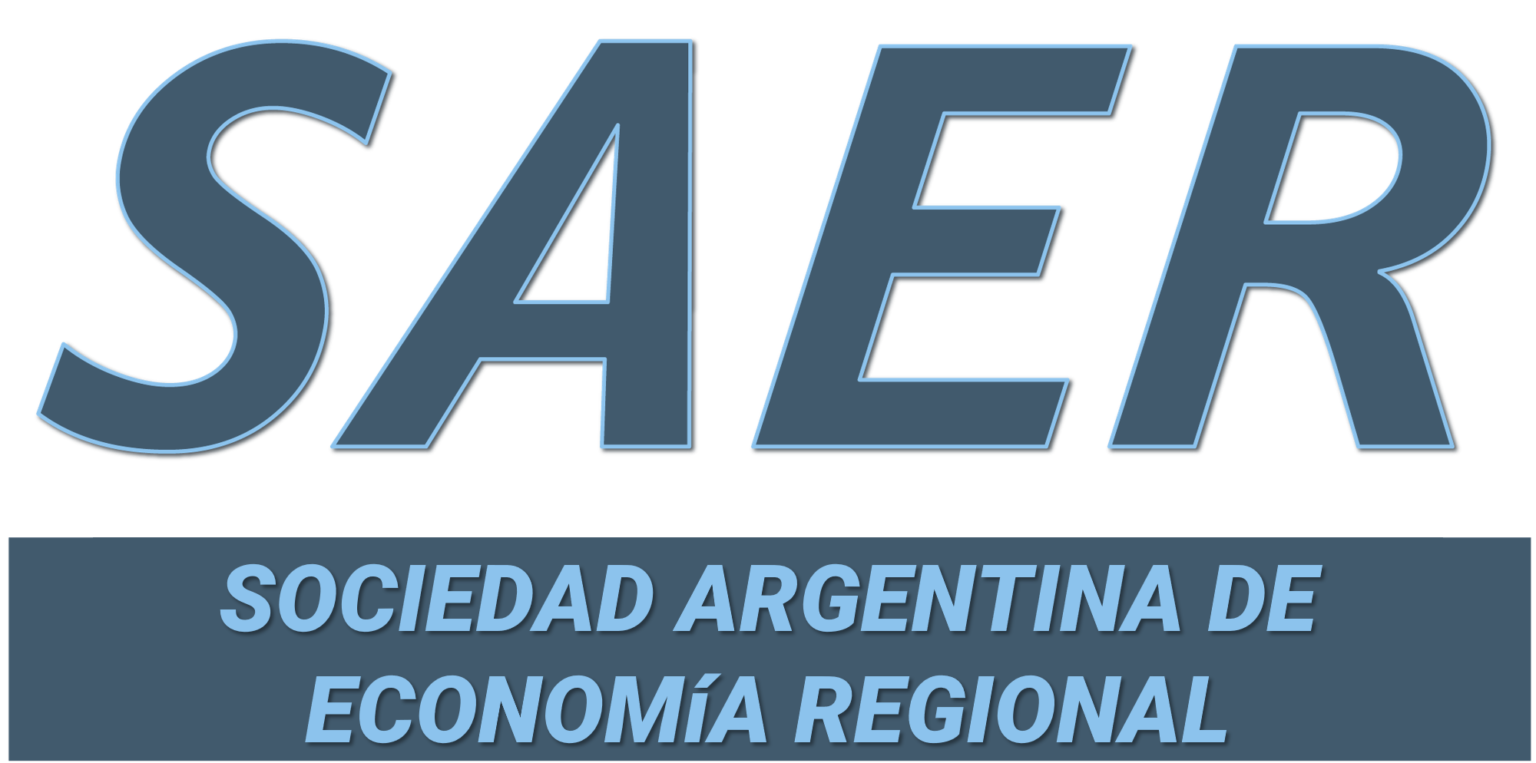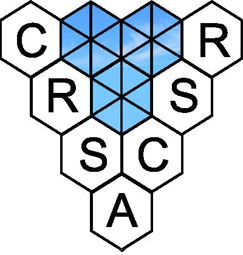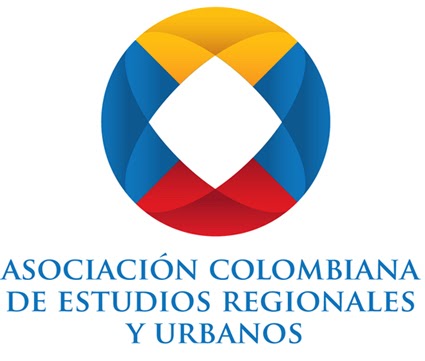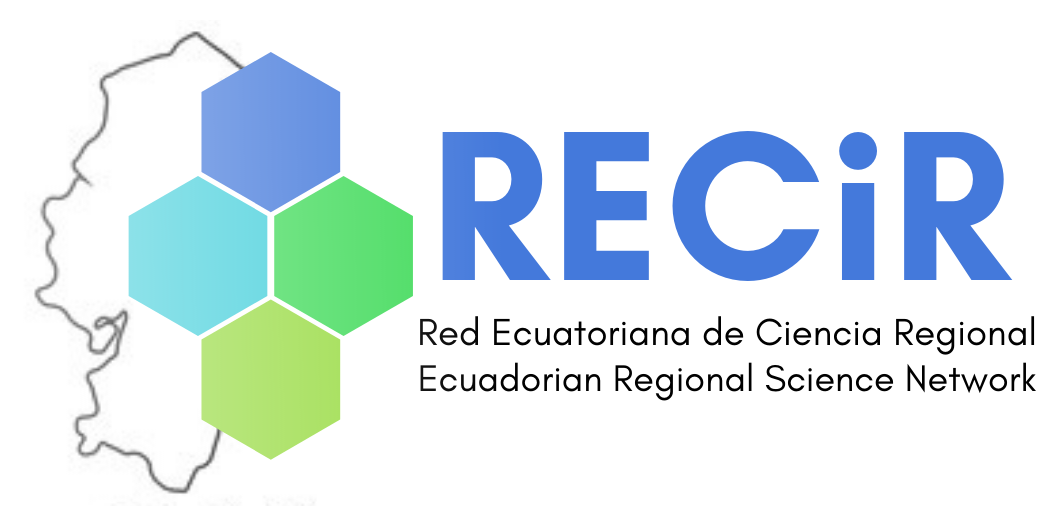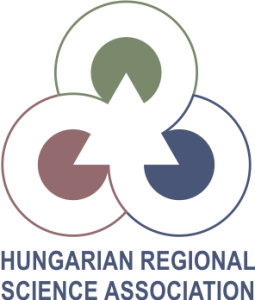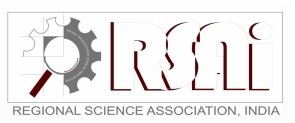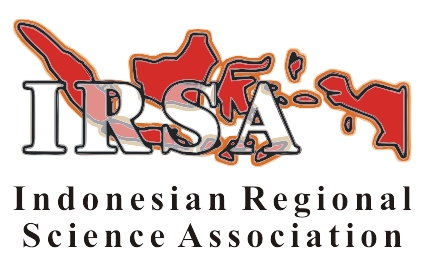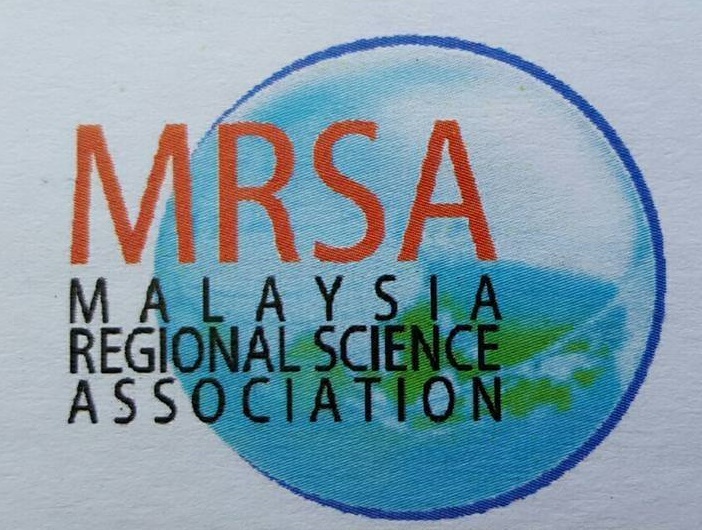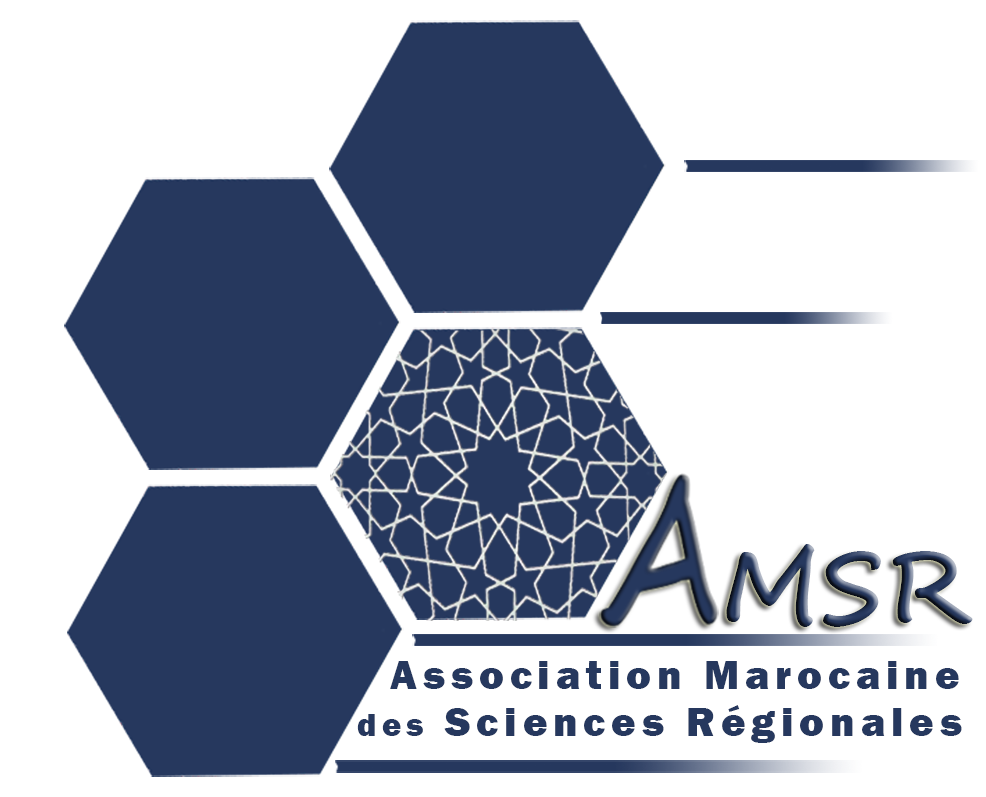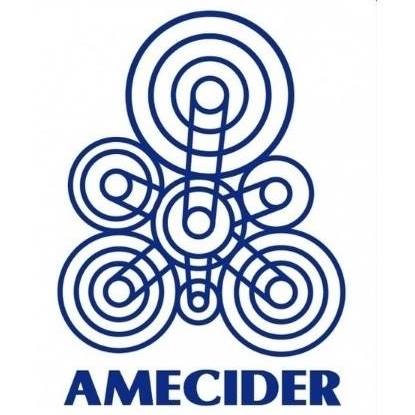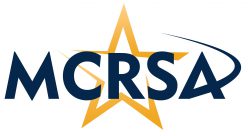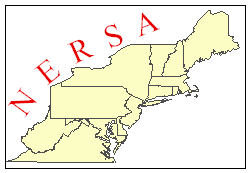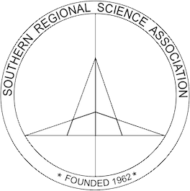Congress
Elisabete Martins
Lowell DeWitt Ashby
Lowell DeWitt Ashby, 89, an economist who retired from the Department of Commerce in 1981, died of pneumonia March 3 at Virginia Hospital Center in Arlington. He lived in Arlington. Dr. Ashby joined the staff at the Commerce Department in 1962. From 1948 to 1962, he served on the economics faculty at the University of North Carolina at Chapel Hill. He was born in Hastings, Neb., and graduated from Hastings College. He received a master's degree in economics from the University of Minnesota and a doctorate in economics from the University of Wisconsin. During World War II, he was a Navy communications officer in North Africa, Italy and France. In 1966, he received the Department of Commerce's Silver Medal for "advancing the concepts and techniques of regional economic research." He was a past president and fellow of the Southern Regional Science Association. In retirement, Dr. Ashby was financial partner of the Potomac Investment Club, which he organized in 1969. He was an accomplished water color artist and a member of the Cosmos Club. Survivors include his wife of 61 years, Fern E. Ashby of Arlington; two children, Genette Ashby-Beach of Atlanta and L. DeWitt Ashby Jr. of Vienna; and three grandchildren.
Wolfgang F. Stolper
Wolfgang passed away at the age of 89. Renowned as a trade theory and development economist, Stolper was also a friend and supporter of regional science and aided the publication of August Loesch's book on location theory in English. Stolper participated in the Heidenheim Loesch Tage and received the Ehrenring of Heidenheim City.
Morgan David Thomas
Morgan was born January 5, 1925 in Pontardulas, South Wales. He passed away peacefully on August 6, 2001 in Everett, Washington. He is survived by his beloved wife, Muriel, his three daughters Siobhan, Myfanwy, and Sine, his son, Michael, and four grandchildren. After his early schooling in South Wales, Morgan enlisted and served five years in the Royal Air Force during and after World War II, receiving his commission and his wings as a navigator. After demobilization in 1947 he attended Queens University in Belfast where he graduated with honors in 1951. He earned a Ph.D. in geography at Queens in 1954. After teaching and research appointments at the University of Michigan and Montana State University where he chaired the geography department, Morgan was invited to the University of Washington in 1959. He quickly won recognition here and abroad as an expert in the fields of economic geography and regional science with many of his research papers published in American and European journals. He was active for more than three decades in the Regional Science Association, serving a term in the 1970s as their international president. At the University of Washington, in addition to his teaching duties and graduate student supervision, Morgan was an administrator in the graduate school, in the provost's office and in the College of Arts and Sciences. He was chairman of the department of geography from 1983 to 1990. One of Morgan's most notable achievements was the supervision of masters and doctoral students, leading them to their degrees with his sage advice and direction. His former students and faculty colleagues hold him in great esteem, valuing his friendship and intellectual guidance. Morgan will be sorely missed by his loving family and good friends.
Archives
About 1980, the Rare and Manuscript Collections of Cornell University Library became the official repository for the records and papers of what is now the Regional Science Association International. At that time, the Library had accumulated a noteworthy collection of papers of early academic urban planners and architects. The Regional Science Archives were established as an extension of this activity through the efforts of Professor Barclay G. Jones of Cornell's Department of City and Regional Planning. Hence, Professor Jones was the Founding Archivist of the RSAI.
Presently, the Regional Science Archives consists mainly of the collected papers of Professors Walter Isard and Barclay Jones. Professor Isard donated about 100 cubic feet of material to the Archives when he moved to Cornell University in 1979. Professor Jones's papers consisting of about 42 cubic feet were transferred to the Archives following his death in May 1997. In addition to these collections, smaller research files have been contributed by several past presidents of the Association.
After David Boyce became the Archivist of the RSAI in January 1998, he worked with the staff of the Rare and Manuscript Collections to define appropriate and realistic long-term objectives for the Regional Science Archives. The following objectives for the Regional Science Archives were discussed and endorsed by the RSAI Council at Montreal on November 11, 1999:
- collect, organize and preserve materials pertaining to the founding, development and influence of the Regional Science Association International (newsletters, conference programs and abstracts, financial reports, directories, etc.).
- advise individual regional scientists on placing their papers in appropriate archives. For academics, the likely archival repository is their own university archives; for practitioners, local and regional historical societies may have an interest in preserving examples of their work; similarly, academic programs in regional science should preserve materials in their own university archives.
- advise individuals concerning what materials are worth preserving in archives; generally, published books and articles available in library collections are not placed in archives; however, other printed items of a more temporary nature such as course outlines, printed notes, and significant correspondence is appropriate for archiving. It helps greatly if the materials are in good order and well labeled. Likewise, it is desirable for someone who understands manuscript materials to sort through the papers and discard items of short term interest, as appropriate.
Inquiries from individuals and academic programs should be directed to the current Archivist, who will attempt to offer advice, after consulting with the Curator of Rare and Manuscript Collections of Cornell University Library.
The RSAI Archivist is also a general resource for historical and reference information about Regional Science. The Archivist routinely receives requests concerning the whereabouts of published and unpublished papers in our Regional Science field. However, as can be seen from the above discussion, this activity is not the main function of the Archivist.
David Boyce This email address is being protected from spambots. You need JavaScript enabled to view it. served as RSAI Archivist from 1998, following the death of Professor Jones, until late 2017. At the time, Peter Batey This email address is being protected from spambots. You need JavaScript enabled to view it. became the RSAI Archivist. Inquiries concerning the Regional Science Archives should be sent to Peter Batey. On matters of historical interest, a copy can also be sent to David Boyce.
RSAI Sections
The four superregional organizations recognized by RSAI are:
- The European Regional Science Association (ERSA), comprising sections in the European realm;
- The North American Regional Science Council (NARSC), comprising sections from North America;
- The Pacific Regional Science Conference Organization (PRSCO), comprising sections in Asia (East, South East and South), Australasia and the Pacific Rim facing parts of the Americas;
- The Latin American Regional Science Association (LARSA), comprising sections from Latin America and the Caribbean.
RSAI Sections
New RSAI Sections
Background
To retain its position as the worldwide leading organization of scientists and practitioners in regional science, RSAI has the ambition to take the lead and promote regional science in parts of the world not yet covered by RSAI sections. The main reason is to welcome scientists and practitioners in regional science in parts of the world not covered by existing RSAI sections to the RSAI network, congresses, workshops, journals, and other meetings organized by RSAI sections. RSAI also has the ambition to, through its sections, organize congresses, workshops, and other meetings in parts of the world not yet covered by RSAI sections in order to spread regional science and recruit both scientists and practitioners to the field of regional science. Therefore, RSAI welcomes initiatives to form new RSAI sections. In order to facilitate the formation and long-term viability of new sections, some initial financial support is available from the RSAI central office to these new sections. Specific details are outlined below.
It is important to stress that all new sections must meet the following three prerequisites:
- The section must be ruled by a democratically elected board;
- The section must have organized at least a regional science conference in the recent past;
- The section must be ruled by a constitution, laying down clear rules for its functioning.
Applications
Time schedule
- Deadline for applications: August 15 each year.
- At the ERSA meeting in August each year, the RSAI council will evaluate applications and decide either to reject the application right away or invite the applicants to make an oral presentation at the NARSC meeting in November. If the NARSC meeting is too far away for the new section representative to attend, the council is willing to consider a presentation at a PRSCO, RSAmericas, or ERSA meeting.
- After the oral presentation the RSAI council makes a final decision.
Applications should be organized as follows:
- Background (max 1 pages)
- Motivation for a new RSAI section (max 2 page)
- Estimate of the number of new members (max 1 page)
- PhD students
- Professors
- Practitioners
- Organization (max 2 pages)
- Planed activities during the first 3 years (workshops, congresses, meetings, networking) (max 2 pages)
- Financial plan for the first 3 years including the financial support asked for from RSAI. A brief plan for how the financial support from RSAI could be repaid. (max 1 page)
Evaluation criteria
Each application is treated individually. The main evaluation criteria are:
- The need for a new section in the region from RSAI’s perspective
- The number of potential new RSAI members in the region – PhD students, Professors, and practitioners
- The estimated ability for the new section to organize workshops, congresses, meetings and to create a member network
- The financial plan
http://cluster006.ovh.net/~regionalh/modules/mod_bt_contentslider/tmpl/images/re-right.png
Constitution
Article I. Name
The name of the organization shall be the Regional Science Association International (known by the acronym RSAI).
Article II. Objectives and Scope
RSAI is an international association set up to advance for the benefit of the public, regional analysis and related spatial and areal studies.
Article III. Membership
Section 1. Members
The principal criterion of eligibility for membership shall be a mature and deep interest in the field of regional science. Membership of RSAI is normally obtained through membership of a local Section. In exceptional circumstances direct individual membership may be considered by the Executive Director (an officer defined by Article V. section 3d).
Membership shall be renewed annually by payment of dues. This may be through a capitation levied on a section and/or collected through one of the superregional organizations established by the Association (see Article IV and By-law 1). If a member shall fail to pay dues within six months after the date of official renewal notice, the membership shall be considered terminated and the name shall be removed from the roster of members.
Section 2. Membership Rights
All members shall have full voting and office-holding rights.
Section 3. Misuse of Affiliation
Any member or associate who makes use of his affiliation with the Association in a manner considered improper by the Council (a body defined by Article V, Section I) may be suspended by the Council. After opportunity has been given to the individual for a hearing before the Council the member may be expelled from the Association by a vote of the Council.
Section 4. Limitation of Liability
No member or officer shall be individually liable for the debts, contracts, and other obligations of the Association, other than the dues paid for membership. This proviso shall appear in all contracts entered into by, and behalf of, RSAI.
Article IV . Organizational Structure
Section 1. Superregional Organizations
RSAI comprises superregional associations which, in turn, comprise affiliated local sections/associations (see Section 2 of this Article). The superregional associations and their sections are specified in By-law 1 of this Constitution.
Superregional organizations shall actively promote the establishment of affiliated sections/ associations within their territory of responsibility.
Superregional organizations, in addition to promoting their own branding and that of their member sections, also promote the branding of RSAI (See By-law 2 of this Constitution).
Section 2. Affiliated Sections/Associations
- Definition. An affiliated section/association of RSAI shall consist of a grouping of regional scientists defined on a geographic, language, or cultural basis who desire to organize scholarly meetings, publications, and other activities that contribute to the advancement of regional science.
- Recognition of Existing Sections. RSAI shall recognize all existing, approved sections of the Regional Science Association which, individually or through an arrangement with a superregional organization to which they belong, participate in the universal membership of RSAI and thus contribute an annual capitation fee.
- Creation and Recognition of New Sections/Associations. Any additional group of regional scientists meeting the criteria specified in Section 2a may propose to organize an affiliated section/association by adopting a constitution for consideration and approval by RSAI. Sections/associations located within the territory commonly associated with one of the superregional organizations specified in Section 1 of this Article shall seek approval through the procedures specified by that organization. Applicant sections/associations not located within any such territory shall seek recognition through RSAI Council (a body defined in Article V, Section I). The approving body (the superregional organization or International Council) shall take care to approve names which will not unnecessarily preclude the future formation of affiliated sections/associations with related interests.
- Articulation of Membership. Membership in an affiliated section/association does not, in all cases, grant membership rights in RSAI. Affiliated sections/associations that do not make membership in RSAI a criterion for membership in the section/association shall actively encourage voluntary membership in RSAI according to the provisions of Article III, Section I of this Constitution.
Section 3. Limitation of Liability
RSAI and its officers shall not be liable for the debts, contracts, and other obligations of superregional organizations or affiliated sections/associations.
Article V. Administration
Section 1. Council
RSAI shall be administered by a Council consisting of nineteen (19) voting members; this number shall include voting officers. The voting members of the Council and the election rules of the RSAI Council members and officers are specified in By-law 3 of the Constitution.
Section 2. Duties of the Council
RSAI Council shall take a global view of the objectives of the Association set out in Article II. Once appointed or elected, each member of the Council shall represent the best interests of the regional science community throughout the world rather than those exclusive to any world region, including that in which the member is normally resident. The Council shall actively encourage the institutionalization of regional science throughout the world.
Section 3. Officers
- President. The President of RSAI represents the Association and is responsible for its business. The President is a regular, voting, and working member of the Council. The presidency is not a ceremonial position. The President shall serve a two-year term of office, succeeding to the position immediately upon completion of a term of office as Vice-President and President-Elect. The President shall provide active and aggressive leadership in the areas of program and policy development. During the initial year of implementation of this Constitution, the existing President of the Regional Science Association shall assume the duties of President of RSAI and shall subsequently succeed to the position of Immediate Past-President, as specified in paragraph c below.
- Vice-President and President-Elect. The President-Elect of RSAI acts as the Vice President. He/she is a regular, voting, and working member of the Council. The President-Elect shall serve a one-year term of office, which shall be followed immediately by a two-year term as President. The Vice-President and President-Elect shall act for the President in the President's absence.
- Immediate Past President. The Immediate Past President shall serve a two year term of office, normally succeeding to the position immediately upon completion of the term of office as President. The Immediate Past President shall act for the President in the President's absence, there being no Vice-President and President-Elect in years in which this office shall be filled. Unless the Immediate Past President shall be serving, during the term of office, an unexpired term as a regular member of the Council, the Immediate Past President shall be considered an ex officio, nonvoting member of Council.
- Executive Director. The Executive Director shall serve a three-year term of office. He/she shall be the chief executive officer in charge of setting and managing programs. The Executive Director shall be the chief operating officer in charge of implementing the policies of the Council, overseeing the day-to-day operations of the Association and establishing contacts with new regional science organizations throughout the world. The duties of the Executive Director shall encompass those normally associated with the positions of Secretary but would have joint authority with the Treasurer for the finances of the RSAI and issuing cheques to cover the Association's operating expenses and the preparation of a financial statement to be submitted, by March 31 of each year, to the Council’s standing Finance Committee, in charge of financial planning and budgeting. The Executive Director shall oversee the production and distribution of a newsletter to the membership, shall maintain the roll of members and the association’s web site, shall oversee the collection of annual dues and the conduct of elections, and shall serve as international conference coordinator, keeping a calendar of regional science meetings and events throughout the world, providing advice on their scheduling, and monitoring the dates of other meetings so as to minimize scheduling conflicts. The Executive Director shall also have responsibility, as designated by the Council, for the organization and operation of the World Congresses of the Association.
- Other officers and ex officio, nonvoting members of the Council. The Council may appoint additional officers, such as an Archivist, a Publications Coordinator, and Editors of the journals of RSAI as it deems appropriate. Individuals holding such positions shall be considered officers of the Association and ex officio, nonvoting members of the Council. The terms of office for such positions shall be specified by the Council.
Section 4. Long Range Planning Committe
The Long Range Planning Committee (LRPC) shall provide advice, as requested, to the President and the Council on issues relating to the strategic development of regional science and the affairs of RSAI. The membership of the Long Range Planning Committee comprises the Past Presidents of RSAI, plus two members of the Council, appointed by the Council, who are voting members of the LRPC. The appointed members are part of the LRPC as long as they are members of the Council. When their term as members of the Council expires, their role in the LRPC also ends. The Council immediately elects a new member.
Section 5. Sub-Committees of the Council
The Council may from time to time establish Sub-Committees to perform specific functions as determined by Council. One Sub-Committee to be established by the Council is the Finance Committee comprising the President, the Immediate Past President and/or the President Elect, the Executive Director, the Treasurer (a non-voting member), and two Council voting members chosen by the Council to serve for a period of two years. The Finance Committee elects a Chair, who regularly reports to the RSAI Council. Financial Accounts are checked once a year, before the external audit of the accounts, by an internal Audit Committee, comprising two Council members who are not members of the Financial Committee, appointed by the Council, and are appointed for a period of three years.
Section 6. Term of Office for Council Members
- Standard term. Except as otherwise provided for in this Constitution, the standard term of office for members of the Council shall be three years. All Council terms and terms of officers shall normally commence on January 1 and end on December 31.
- Limitation on consecutive terms. Normally, no person shall serve more than two consecutive terms or a total of six years on the Council. Persons appointed to fill uncompleted or other special terms shall be considered to have served a full term on the Council if such a term shall be for more than twelve (12) full months in duration. Persons elected to be President or Executive Director may serve more than 6 years on the Council (but no more than 9 years).
Section 7. Uncompleted Terms of Office
In the event that voting positions of the Council become available through death, resignation, or other reasons, they may be refilled following the procedures as specified below:
- Council member appointed by a superregional organization. If the position is one which was occupied by a member appointed by a superregional organization, that organization shall have the option of appointing a replacement to: (a) complete the unexpired portion of the term, (b) serve a full three-year term of office, or (c) serve a special term of office of less than three-year duration. In choosing from among these options the organization shall be requested to select that most consistent with the desirable staggering of the terms of office for its three Council positions
- Council member elected at-large. If the position is one which was occupied by a member elected at-large, unless the position shall then become encumbered through the provisions of Article V, Section 5, the Council shall have the option of selecting a replacement to (a) complete the unexpired portion of the term, (b) serve a full three-year term of office, or (c) serve a special term of office of less than three-years duration. The regular election schedules shall be followed when replacing councilors who are not officers. In choosing among these three options, Council shall select that most consistent with the desirable staggering of terms of office for the Council positions filled by election at-large
- Vice-President and President-Elect. If the position is that of Vice-President and President-Elect, the Council shall initiate steps to fill the vacancy in a timely fashion through a special election. The new Vice-President and President-Elect shall take office immediately upon certification of election results and shall succeed to the office of President on January 1 of the year following the initiation of the special election. If necessary to ensure continuous occupancy of the presidency, the current President of the Association shall remain in office until replaced by the new Vice-President and President-Elect. If the current President is unable or unwilling to agree to such extension of term of office, the Council shall appoint an Acting President from among its current membership.
- President. If the position is that of President, the Immediate Past President shall serve as Acting President during the first year of the presidential term and the Vice-President and President-Elect shall succeed to the Presidency during the second year of the uncompleted term. The regular two-year term of office as President to which the Vice-President and President-Elect was elected to succeed shall remain unchanged.
- Executive Director. If the position is that of Executive Director, the position shall be filled by the Council following regular procedures. The President shall carry out the duties of Executive Director until a replacement assumes office.
- Immediate Past President. If the position is that of Immediate Past President, the Executive Director shall perform the duties of Immediate Past President.
Section 8. Quorum
If the number of voting Council members at any meeting of the Council is less than 50 percent of the total voting membership of the Council any decisions taken shall not be considered final until they have been:
- submitted by the Executive Director to the full Council in written form and approved by ballot, or
- formally voted upon at the next meeting of the Council at which a quorum is present.
Article VI. Meetings
Section 1. International Meetings of the Association
Regular European, North American (from 2008 The Americas), and Pacific meetings of the Association shall be held under the direction of the respective superregional organizations. In addition, World Congresses may be held periodically with arrangements to be specified by the Council.
Section 2. Council Meetings
The Council normally shall meet in conjunction with each of the three regular, major meetings of the Association and with each World Congress. Additional meetings of the Council may be called, in exceptional circumstances, by the President. Attendance at meetings of the Council shall be open only to its members and other individuals expressly invited by the President.
At the discretion of the President, other meetings of the Council may be held through teleconferencing to deal with a matter of urgency.
Article VII – By-laws
The names of superregional associations, the rules for the elections of the President, the Executive Director and the members of the RSAI Council are specified in by-laws. Moreover, by-laws regulate: i) the branding of RSAI by the three superregional associations and by all local associations, and ii) the role of specific Committees. Amendments to the by-laws may be proposed by any member of Regional Science Association International Council and shall be adopted upon affirmative vote of the majority of the Council.
Article VIII. Amendments to This Constitution
Amendments to this Constitution may be proposed either by action of the Council or by petition of at least 50 active members of the Association and shall be adopted upon affirmative vote of two-thirds of the members voting. Such voting shall take place by mail ballot
Article IX. Dissolution
If the members resolve to dissolve the organization the Committee and Trustees of the Charity will remain in office as Charity trustees and be responsible for winding up the affairs of the organization and the Charity in accordance with this clause. The Trustees will collect in all the assets of the charity and must pay, or make provision, for all the liabilities of the charity. The Trustees must apply any remaining property or money:
- directly for the objects of the Charity
- by transfer to any charity or charities for purposes the same as or similar to the Charity
- in such other manner as the Charity Commissioners for England and Wales (‘the Commission’) may approve in writing in advance.
The members may pass a resolution before or at the same time as the resolution to dissolve the organization and the Charity specifying the manner in which the Trustees are to apply the remaining property or assets of the Charity and the Trustees must comply with the resolution if it is consistent with paragraphs a-c above.
In no circumstances shall the net assets of the Organization and Charity be paid to or distributed among the members of the Organization or Charity
The trustees of the Charity must notify the Commission promptly that the charity has been dissolved. If the Trustees are obliged to send the Charity’s accounts to the Commission for the accounting period which ended before its dissolution they must send to the Commission the Charity’s final accounts.
Presidents
The Regional Science Association was organized in December 1954 at the annual meeting of the Allied Social Science Associations in Detroit, Michigan. The founder of the association was Walter Isard, who served as chairman in the formative years. In 1957 elections were held for the first time. The following is a list of persons who held the office of President, the term and the scholarly field of the president, generally defined as the field of their highest degree.
Presidents, Terms & Fields
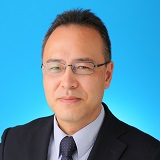 |
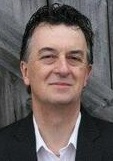 |
 |
|
|||||||||||||||||||||
|
Hiroyuki Shibusawsa
2025-2026, Urban and
Regional Economic System
(VP2024)
|
Hans Westlund
Sweden, 2023-2024, Urban and
Regional Studies
(VP 2022)
|
Eduardo Haddad
Brazil, 2021-22, Economics
(VP 2020)
|
||||||||||||||||||||||
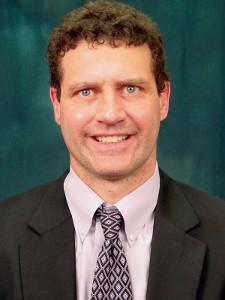 |
 |
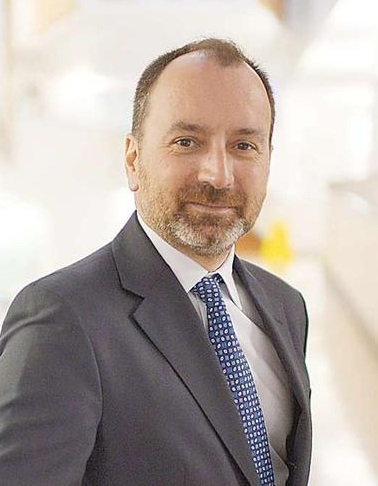 |
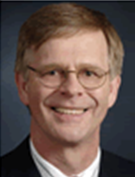 |
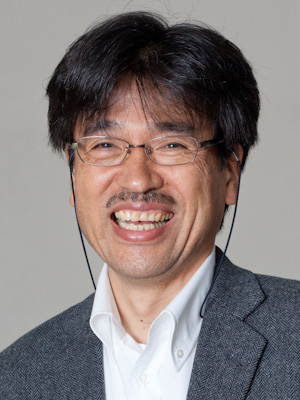 |
||||||||||||||||||||
|
Mark Partridge
USA, 2019-20, Economics
(VP 2018)
|
Budy Resosudarmo
Indonesia/Australia, 2017-18,
Economics
(Jacques Poot, VP 2016)
|
Andrés Rodríguez-Pose
Spain/UK, 2015-16, Geography
(VP 2014)
|
Jean-Claude Thill
Belgium/USA, 2013-14, Public Policy
(VP, 2012)
|
Yoshiro Higano
Japan, 2011-12, Environmental Science
(VP 2010)
|
||||||||||||||||||||
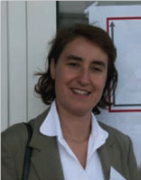 |
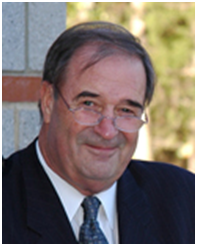 |
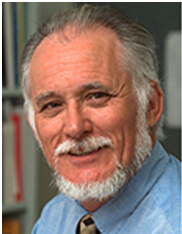 |
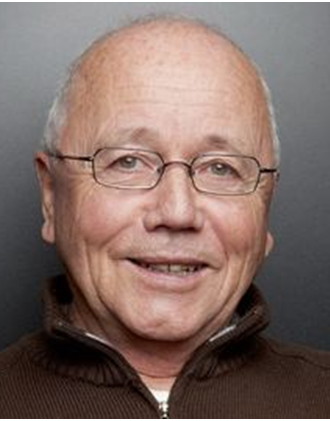 |
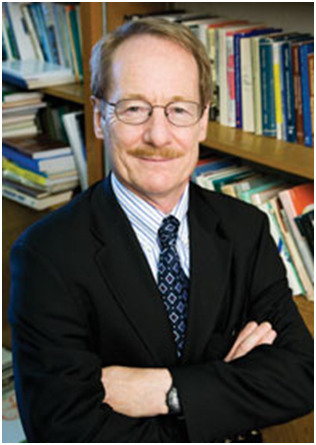 |
||||||||||||||||||||
|
Roberta Capello
Italy, 2009-10,Regional Economics
(VP 2008)
|
Roger R. Stough
USA, 2007-08, Geography and
Environmental Engineering
(VP 2006)
|
Robert J. Stimson
Australia, 2005-06, Geography
(VP 2004)
|
Antoine Bailly
France/Switzerland, 2003-04, Geography
(VP 2002)
|
Geoffrey J.D. Hewings
UK/ USA, 2001-02, Geography
(VP 2000)
|
||||||||||||||||||||
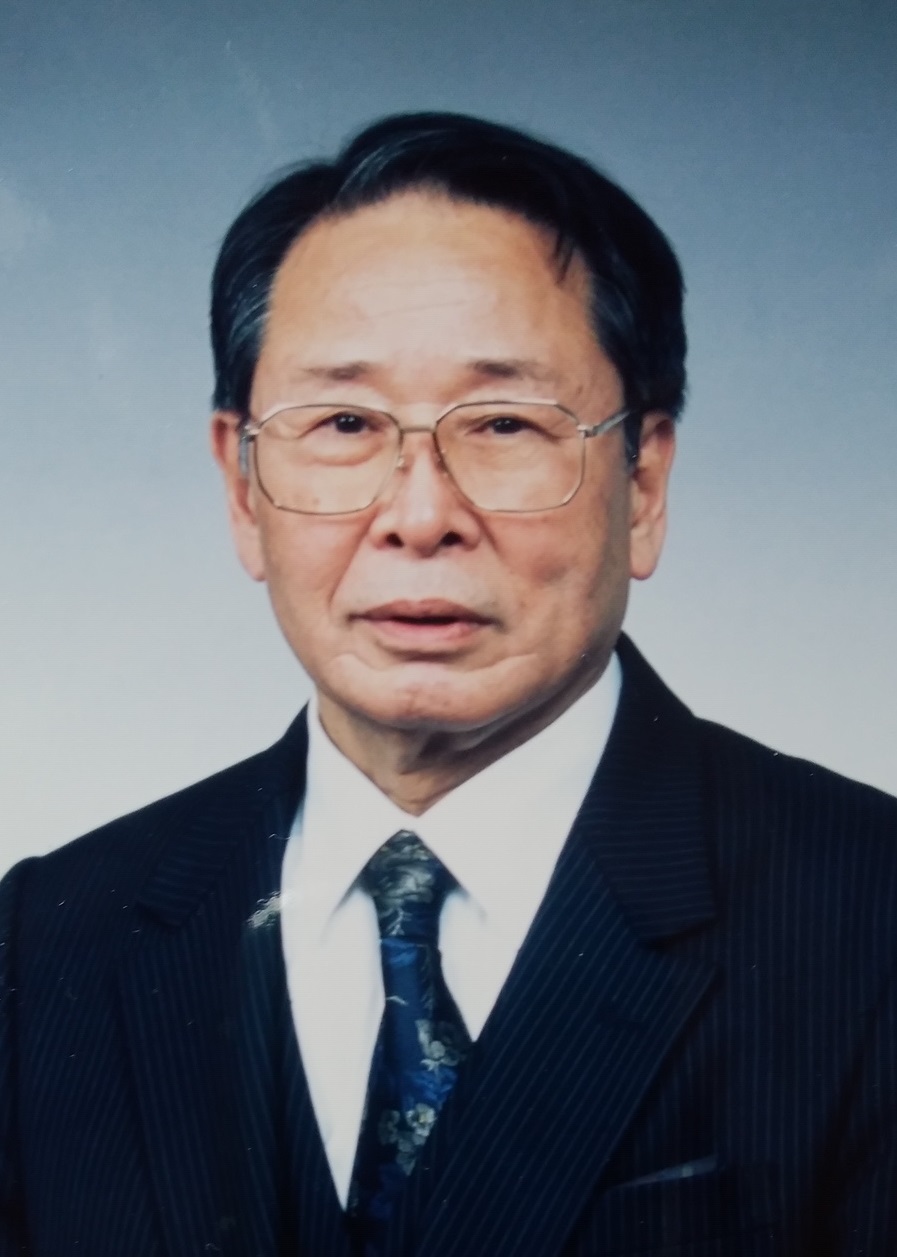 |
 |
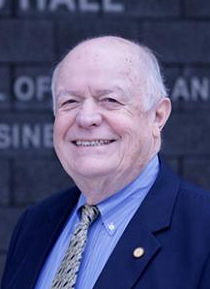 |
 |
 |
||||||||||||||||||||
|
Hirotada Kohno
Japan, 1999-00, Economics
(VP 1998)
|
Peter Batey
UK, 1997-98, Regional Planning
(VP 1996)
|
Kingsley E. Haynes
USA, 1995-96, Geography
(VP 1994)
|
Lay Gibson
USA, 1993-94, Geography
(VP 1992)
|
Peter Nijkamp
Netherlands, 1991-92, Economics
(VP 1990)
|
In 1989, the Regional Science Association was reorganized as the Regional Science Association International. Beginning in 1991, Presidents serve two-year terms.
| Rodney C. Jensen, Australia, 1989-90, Economics |
| Rolf Funck, Germany, 1988-89, Economics |
| Noboru Sakashita, Japan, 1987-88, Economics |
| David Boyce, USA, 1986-87, Regional Science |
| Lloyd Rodwin, USA, 1985-86, Regional Planning |
| Ake Andersson, Sweden, 1984-85, Economics |
| Allan Pred, USA, 1983-84, Geography |
| Barclay G. Jones, USA, 1982-83, Economics |
| Ryszard Domanski, Poland, 1981-82, Geography |
| Jean Paelinck, Netherlands ,1980-81, Economics |
| Martin J. Beckmann, USA, Germany, 1979-80, Economics |
| William Alonso, USA, 1978-79, Regional Science |
| Per Holm, Sweden, 1977-78, City Planning |
| Leo H. Klaassen, Netherlands, 1976-77, Economics |
| Morgan D. Thomas, USA, 1975-76, Geography |
| Stan Czamanski, USA and Israel, 1975-76, Regional Science |
| Genpachiro Konno, Japan, 1974-75, Economics |
| Leon N. Moses, USA, 1972-73, Economics |
| Kazimierz Dziewoński, Poland, 1971-72, Geography |
| Gerald A. P. Carrothers, Canada, 1970-71, Regional Planning and Economics |
| Benjamin Chinitz, USA, 1969-70, Economics |
| Torsten Hägerstrand, Sweden, 1968-69, Geography |
| Benjamin H. Stevens, USA 1967-68, Regional Planning and Economics |
| Britton Harris, USA, 1966-67, City Planning |
| William Warntz, USA, 1965-66, Geography |
| Charles L. Leven, USA, 1964-65, Economics |
| William L. C. Wheaton, USA, 1963-64, Political Science |
| William L. Garrison, USA, 1962-63, Geography |
| Edgar M. Hoover, USA, 1961-62, Economics |
| Edward L. Ullman, USA, 1960-61, Geography |
| Robert B. Mitchell, USA, 1959-60, City Planning |
| Walter Isard, USA, 1958-59, Economics |
| Walter Isard, USA, 1957-58, Economics |
Minutes
The main objectives of the Association are the fostering of exchange of ideas and the promotion of studies focusing on the region, including the utilization of tools, methods and theoretical frameworks, specifically designed for regional analysis as well as concept, procedures and analytical techniques of the various social and other sciences. These objectives are supported through the acquaintance and discussion among its members and with scholars in related fields, by the encouragement of publication of scholarly studies and by performing services to aid the advancement of its members and the field of regional science. Minutes of the RSAI meetings are in pdf format for your convenience.
RSAI Minutes
Select the appropriate minutes to open the PDF file in a new window:
Council
An interdisciplinary, international organization focusing on understanding the growth and development of urban, regional, and international systems.
PresidentHiroyuki Shibusawsa (2025-2026) |
Vice President |
Executive DirectorAna Viñuela (2025-2027) |
|||||||||||||
Councillors |
|||||||||||||||
ERSA |
NARSC |
LARSA |
PRSCO |
||||||||||||
|
Roberta Capello (2024-2026) Eveline Van Leeuwen (2020-2025) Lise Bourdeau-Lepage (2022-2025) |
Elizabeth Mack (2021-2026) Haifeng Qian (2024-2026) Sarah Low (2025-2027) |
Carlos Azzoni (2020-2025) Patricio Aroca (2020-2025) Fernando Perobelli (2024-2026) |
Kwon Park (2024-2026) Hidehiko Kanegae (2021-2026) Sumona Banerjee (2025-2027) |
|
|||||||||||
Councillors-at-large |
|||||||||||||||
|
André Chagas (2024-2026) Camilla Lenzi (2024-2026) Daniela Constantin (2020-2025) Katarzyna Kopczewska (2024-2026) Sébastien BourdinSébastien Bourdin (2025-2027) |
|||||||||||||||
Ex-officio
Immediate Past President
Treasurer
Financial Officer
Elisabete Martins
Archivist
Editors 'Papers in Regional Science':
Editor in Chief: Rosella Nicolini
Editors 'Regional Science Policy & Practice':
Editor in Chief: Andrea Caragliu
Newsletter Editors
Data Sources
America's Labor Market Information System
America's Labor Market Information System
Projections of occupational employment growth are developed for all States and the nation as a whole. One of the most important uses of the projections is to help individuals make informed career decisions. Information on this site allows projected employment growth for an occupation to be compared among States. It also allows projected employment growth among occupations to be compared within one State.
Central Intelligence Agency Publications and Handbooks
Central Intelligence Agency Publications and Handbooks
The Central Intelligence Agency's primary mission is to collect, evaluate, and disseminate foreign intelligence to assist the President and senior US Government policymakers in making decisions relating to the national security.
Consortium for International Earth Science Information Network
Consortium for International Earth Science Information Network
CIESIN was established in 1989 as a non-profit, non-governmental organization to provide information that would help scientists, decision-makers, and the public better understand their changing world. CIESIN specializes in global and regional network development, science data management, decision support, and training, education and technical consultation services. CIESIN is the World Data Center A (WDC-A) for Human Interactions in the Environment.
Data and Statistics about the U.S.
Find data about the U.S., such as maps and population, demographic, and economic data.
EconData.Net
A website with links to over 125 on-line sources of regional socioeconomic data. Although the Web offers a substantial, and ever-increasing, amount of economic data on-line, it has been difficult to know what data are available and how to find them. To aid development practitioners and researchers in their search for on-line data, EconData.Net provides links to over 125 public, university, and private sources of regional socioeconomic data. Access to on-line data is provided to the various series profiled in the User's Guide as well as many others.
Economy.com
Economy.com's FreeLunch provides with free access to over 1,000,000 economic and financial data series.
FedStats
More than 70 agencies in the United States Federal Government produce statistics of interest to the public. The Federal Interagency Council on Statistical Policy maintains this site to provide easy access to the full range of statistics and information produced by these agencies for public use.
FedWorld
In 1992, FedWorld was established by The National Technical Information Service (NTIS), an agency of the U.S Department of Commerce, to serve as the online locator service for a comprehensive inventory of information disseminated by the Federal Government. This new service assisted agencies and the public in electronically locating Federal Government information, both information housed within the NTIS repository and information we made accessible through an electronic gateway of more than 100 Government bulletin boards. What started out as a small dial-up access system has grown tremendously over the last four years in size, technology, and content. Today, the FedWorld Information Network consists of an integrated network offering the public broad access to a variety of U.S. government publications and data.
Impresa Data Sources
Impresa is a Portland-based consulting firm providing economic analysis, policy development, communication, capacity building and evaluation services. Nearly all of our work deals with helping our clients--businesses, governments, non-profits, individuals--understand and deal effectively with unfolding changes in the economy. These data sources were compiled as part of an EDA funded study to explore the adequacy of socioeconomic data for economic development analysis.
National Science Foundation
The National Science Foundation is an independent U.S. government agency responsible for promoting science and engineering through programs that invest over $3.3 billion per year in almost 20,000 research and education projects in science and engineering.
Penn World Tables
This data currently comprises data from 152 countries and 29 subjects.
Research Papers on Russian Regional Development
Research Papers on Russian Regional Development
The scientific output of the project [Economic Transformation in the Russian Federation: Regional Aspect] is contained in three printed reports.
Resources for Economists on the Internet
Resources for Economists on the Internet
This guide lists the many resources on the Internet of interest to academic and practicing economists, and those interested in economics. In all, more than 700 resources are listed here and almost all are also described. It has been reorganized and completely updated since the last edition.
SDSC Announces Data Central
Interdisciplinary collaborations and community-shared data are becoming increasingly important to researchers of all disciplines. To support these endeavors, San Diego Supercomputer Center (SDSC), a National Science Foundation center, has launched Data Central * the first program of its kind to make available significant research and community data collections and databases. With storage facilities offering more than Petabyte of online disk and Six Petabytes of archival tape storage, SDSC currently hosts more than 60 publicly available data collections. Eligible researchers can request a data allocation from SDSC that provides expanded access to SDSC's Data Central facilities and expert knowledge in data collection managing, hosting, analyzing and data mining. Go tohttp://datacentral.sdsc.edu/ to learn more or fill out the quick or easy online data application form.
STAT-USA/Internet
STAT-USA/Internet, a service of the U.S. Department of Commerce, is the site for the U.S. business, economic and trade community, providing authoritative information from the Federal government.
StatLib
StatLib is a system for distributing statistical software, datasets, and information by electronic mail, FTP and WWW. StatLib started out as an e-mail service and some of the organization still reflects that heritage.
The Dismal Scientist
From here you can view data on all 50 states and Washington D.C.; rank the different states using nearly 130 different criteria, in either ascending or descending order, for as few as 10 or as many as 50 states and Washington D.C. You can also view data on nearly and 257 different metro areas; rank the different metro areas using nearly 60 different criteria, in either ascending or descending order, for as few as ten or as many a 257 different metro areas; or find a particular metro area by entering in a zip code.
The Great Lakes Information Network
The Great Lakes Information Network
GLIN is a partnership that provides one place online for people to find information relating to the binational Great Lakes region of North America. Thanks to its strong network of state, provincial, federal and regional partner agencies and organizations, GLIN has become a necessary component of informed decision-making, and a trusted and reliable source of information for those who live, work or have an interest in the Great Lakes region. Respected across the Great Lakes region and around the world, GLIN offers a wealth of data and information about the region’s environment and economy, tourism, education and more.
The U.S. Office of Trade and Economic Analysis
The U.S. Office of Trade and Economic Analysis
OTEA) conducts a comprehensive program of data development, dissemination, and research and analysis on international and domestic trade and investment issues to support trade promotion and trade policy responsibilities of Trade Development, International Trade Administration , Department of Commerce and U.S. Government organizations and officials. The office also coordinates the trade policy implementation activities of the Trade Development unit.
The University of Minnesota State Economic Development Page
The University of Minnesota State Economic Development Page
- Data Resources by Subject provides two Data Cross-Reference Tables, the first comparing on-line sources based on types of data offered and the second evaluating sites based on ease of access.
- National Data Resources offers a compilation of direct links to federal level, on-line data sources.
- State Data Resources offers a collection of state-specific data sources for economic development.
The University of Virginia: The Social Science Data Center
The University of Virginia: The Social Science Data Center
This system contains data for the member institutions of the Association of Research Libraries. Warning: Some information is restricted.
The World Bank Group
The World Bank Group comprises five organizations: the International Bank for Reconstruction and Development (IBRD), the International Development Association (IDA), the International Finance Corporation (IFC), the Multilateral Investment Guarantee Agency (MIGA), and the International Center for Settlement of Investment Disputes (ICSID).
Time Series Data Library
This is a collection of over 500 time series, maintained by Rob Hyndman. The time series may be freely copied and used, provided this source is clearly acknowledged. The time series are organized by subject.
U.S. Board of Governors of the Federal Reserve System
U.S. Board of Governors of the Federal Reserve System
The Federal Reserve System is the central bank of the United States. It was founded by Congress in 1913 to provide the nation with a safer, more flexible, and more stable monetary and financial system; over the years, its role in banking and the economy has expanded.
U.S. Bureau of Economic Analysis
U.S. Bureau of Economic Analysis
BEA, an agency of the U.S. Department of Commerce, is the nation's economic accountant, preparing estimates that illuminate key national, international, and regional aspects of the U.S. economy.
U.S. Bureau of Labor Statistics
U.S. Bureau of Labor Statistics
The Bureau of Labor Statistics (BLS) is the principal fact-finding agency for the Federal Government in the broad field of labor economics and statistics. The BLS is an independent national statistical agency that collects, processes, analyzes, and disseminates essential statistical data to the American public, the U.S. Congress, other Federal agencies, State and local governments, business, and labor. The BLS also serves as a statistical resource to the Department of Labor. BLS data must satisfy a number of criteria, including relevance to current social and economic issues, timeliness in reflecting today’s rapidly changing economic conditions, accuracy and consistently high statistical quality, and impartiality in both subject matter and presentation.
U.S. Bureau of Transportation Statistics
U.S. Bureau of Transportation Statistics
The Bureau of Transportation Statistics (BTS) is an operating administration of the U.S. Department of Transportation (DOT). The Bureau is headed by a Director appointed by the President and confirmed by the Senate. BTS started operations in December 1992, and is required by the Intermodal Surface Transportation Efficiency Act (ISTEA) of 1991 to improve the knowledge base for public decision making, and to improve public awareness of the nation's transportation system and its consequences. BTS compiles, analyzes, and makes accessible information on the Nation's transportation systems; collects information on intermodal transportation and other areas as needed; and works to enhance the quality and effectiveness of government statistics.
U.S. Census Bureau
The U.S. Census Bureau mission is to be the preeminent collector and provider of timely, relevant, and quality data about the people and economy of the United States.
U.S. Department of Agriculture: Economic Research Service
U.S. Department of Agriculture: Economic Research Service
The Economic Research Service provides economic analyses to support a competitive agricultural system, a safe food supply, a healthy well-nourished population, harmony between agriculture and the environment, and enhanced quality of life for rural Americans.
U.S. Department of Commerce
Established on February 14, 1903, to promote American businesses and trade, the U.S. Department of Commerce is the most versatile agency in government. Its broad range of responsibilities include expanding U.S. exports, developing innovative technologies, gathering and disseminating statistical data, measuring economic growth, granting patents, promoting minority entrepreneurship, predicting the weather and monitoring stewardship. As diverse as Commerce's services are, there is an overarching mandate that unifies them: to work with the business community to foster economic growth and the creation of new American jobs.
U.S. Department of the Treasury
U.S. Department of the Treasury
The Statistics of Income (SOI) program produces data files compiled from tax and information returns filed with theInternal Revenue Service (IRS) .
U.S. Small Business Administration
U.S. Small Business Administration
The U.S. Small Business Administration (SBA) was created by Congress in 1953 to help America's entrepreneurs form successful small enterprises. Today, SBA's program offices in every state offer financing, training and advocacy for small firms. These programs are delivered by SBA offices in every state, the District of Columbia, the Virgin Islands and Puerto Rico. In addition, the SBA works with thousands of lending, educational and training institutions nationwide.
West Virginia University's Regional Research Institute (RRI)
West Virginia University's Regional Research Institute (RRI)
The mission of the Regional Research Institute is to advance the social, economic, and political understanding of regions through interdisciplinary scholarly research. The Institute's activities are international and national in scope, and have a particular focus on West Virginia and Appalachia. Founded in 1965, the RRI creates learning opportunities and provides research support for faculty members and graduate students.
About Us
The Regional Science Association International (RSAI), founded in 1954, is an international community of scholars interested in the regional impacts of national or global processes of economic and social change.

